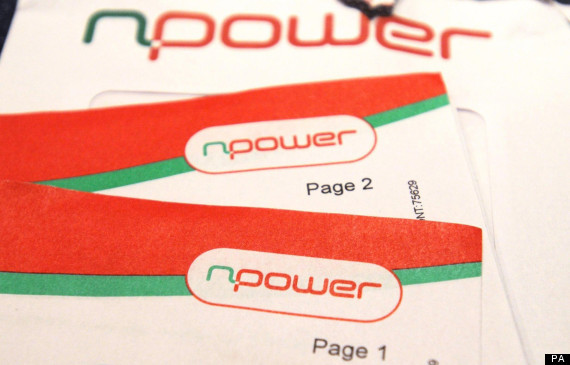Energy giant nPower announces it will cut gas prices by 5.2% from 28 March

Energy supplier nPower will cut its gas price from the end of March 2016, as the former FTSE 100 group becomes the fourth of Britain's big-six energy companies to cuts its tariffs on the back of a decline in gas prices.
As a result of oversupply in the global gas market, prices in the UK fell by 33% in 2015 following a 28% slide the year before, prompting energy-industry regulator Ofgem to warn energy firms were guilty of "overcharging in many cases".
In a statement released on Monday (8 February), the group, which is owned by German energy giant RWE, said it will cut its standard tariff by 5.2% starting from 28 March, meaning approximately 1.2m customers will see the average cost of their tariff decline from £623 to £591.
"This cut in gas prices is welcome news for many of our customers," said group chief executive Paul Coffey. "We have balanced the wholesale price fall against increases in the other costs we are charged."
The move follows a number of similar initiatives by other energy suppliers, as E.On cut its gas prices by 5.1% on 1 February, while Scottish Power will cut its gas tariff by 5.4% on 15 March and SSE which will introduce a 5.3% cut two weeks later. However, the date of the change is expected to be met with widespread criticism, as consumer groups have previously warned that prices are cut only towards the end of the coldest months.
"Consumers will be exasperated at yet another small cut from the big six which, quite frankly, is too little too late," said uSwitch.com Director of Consumer Policy, Ann Robinson. "Hard-pressed customers should be seeing double-digit cuts to bills, to help stay warm and keep the lights on this winter."
With British Gas announcing a price cut in 2015, EDF are the only "big six" group yet to implement a reduction in tariff. "Is there a chance that EDF Energy will do the right thing and announce a price cut that properly reflects the fall in wholesale prices?," Robinson asked.
"Token-gesture price cuts demonstrate that loyalty simply doesn't pay. Standard tariff customers should make their own price cut by switching to a cheaper fixed deal, saving more than £320 a year."
© Copyright IBTimes 2025. All rights reserved.






















